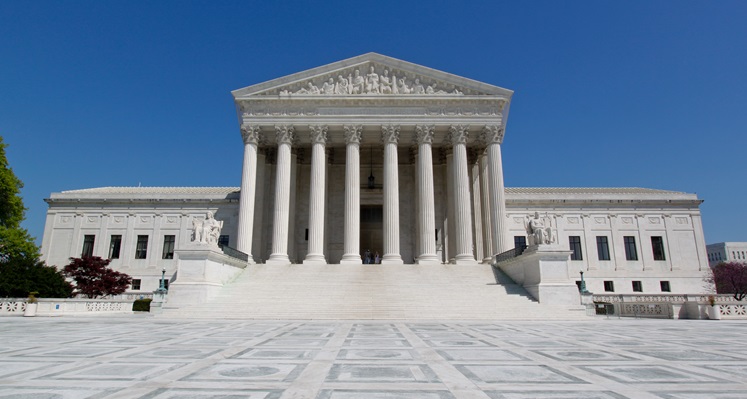In a surprise move, yesterday reportedly saw the United States Supreme Court agree to hear oral arguments in New Jersey’s legal effort to repeal the 25-year-old federal prohibition on legalized sportsbetting in all but four states.
According to a report from The Washington Post newspaper, New Jersey held a successful state-wide referendum and then ratified legislation in 2012 that legalized sportsbetting. However, its attempts to subsequently license and launch such services have been continually blocked due to the Professional and Amateur Sports Protection Act (PASPA) of 1992, which forbids all wagering on sports outside of Nevada, Delaware, Montana, and Oregon. These states were exempted from the country-wide ban because they had approved some form of sports wagering before the federal law went into effect although New Jersey only missed out on its chance to join this quadrumvirate after failing to pass legislation within a required time window.
Although no firm date has been set for the nation’s highest court to begin hearing the one-hour oral arguments, the newspaper reported that a preliminary timeframe suggests that the process could begin as early as August 10 with both sides now preparing briefs in support of their contentions.
One of the staunchest proponents for overturning PASPA, New Jersey federal representative Frank Pallone, was a member of a special Congressional committee that last month proposed draft legislation that would repeal the current partial prohibition and allow individual states to legalize sportsbetting with oversight provided by the Federal Trade Commission.
“I applaud the Supreme Court for taking on this case and potentially resolving a long history of hypocrisy and unfairness in federal law,” read a statement from Pallone, who is a Democratic member of the United States House of Representatives. “The citizens of New Jersey overwhelmingly support legalized sportsbetting and acted in a referendum to show that support. Both Congress and the [United States] Supreme Court should respect these actions. Rather than continuing to allow criminal and offshore entities to reap the benefits of illegal gaming, there is now and opportunity for the [United States] Supreme Court to allow the democratic process in New Jersey to appropriately regulate sports gaming.”
Another supporter of repealing PASPA, the American Gaming Association, last year filed an amicus brief with the United States Supreme Court in support of New Jersey’s efforts. As part of its argument, the lobby group stated that such a reverse would curb an illegal market that is currently conservatively estimated to be worth about $150 billion, create up to 152,000 jobs and lead to around $26 billion in economic output to generate approximately $5.3 billion in tax revenues.
“The Professional and Amateur Sports Protection Act of 1992 has failed to protect sports and fans,” read a statement from Geoff Freeman, President and Chief Executive Officer for the American Gaming Association. “PASPA, which is approaching its 25th anniversary, is fueling an unregulated $150 billion illegal gambling market that continues to deprive states of vital public funding for services such as law enforcement and infrastructure.”
Earlier this month, the American Gaming Association established its special American Sports Betting Coalition to advocate for the legalization of sportsbetting across the country while Freeman proclaimed that he was “pleased” that the United States Supreme Court had “responded favorably to our arguments as to why they should hear this important case.”
“We are hopeful their engagement will provide further encouragement for Congress to take the steps necessary to create a regulated sportsbetting marketplace in the United States,” read the statement from Freeman. “The gaming industry and the American Sports Betting Coalition are committed to working with all relevant stakeholders to build a system that protects states’ rights, fans and the integrity of sports.”



